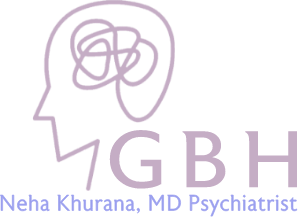Obsessive-Compulsive Disorder (OCD) Treatment and Therapy in Norcross, GA
Get Personalized Treatment and Therapy from a Certified OCD Therapist in Norcross, GA
What is OCD?
Obsessive-Compulsive Disorder (OCD) is a chronic mental health condition characterized by recurring, unwanted thoughts (obsessions) and repetitive behaviors (compulsions). These obsessions and compulsions can interfere with daily life, relationships, and overall well-being. While OCD can be challenging, effective treatments are available to help individuals manage symptoms and improve their quality of life.
At Georgia Behavioral Health, our experienced OCD doctors and therapists in Norcross, GA, provide personalized OCD treatment tailored to each individual’s needs. If you or a loved one is struggling with obsessive thoughts or compulsive behaviors, connect with a certified OCD doctor or psychiatrist today to begin your path to recovery and mental wellness.
Signs and Symptoms of OCD
The symptoms of OCD typically fall into two categories:
- Obsessions: Intrusive, unwanted thoughts, images, or urges that cause significant anxiety. Examples include fears of contamination, a need for symmetry, or intrusive thoughts about harm.
- Compulsions: Repetitive behaviors or mental acts performed in response to obsessions. Examples include excessive hand washing, checking, counting, or arranging items in a specific order.
- Repeatedly checking locks or appliances.
- Excessive cleaning or hand washing.
- Organizing items in a precise, rigid manner.
- Mentally reviewing events to prevent perceived harm.
- Counting or tapping to reduce anxiety.
Who Can Develop OCD?
OCD affects individuals of all ages, genders, and backgrounds. It is believed to be caused by a combination of genetic, biological, and environmental factors. Stress or trauma may also trigger or exacerbate OCD symptoms.
Additional risk factors and contributing elements include:
- Age of onset: OCD often begins during childhood, adolescence, or early adulthood.
- Family history: Having a parent or sibling with OCD or another anxiety disorder increases the likelihood of developing OCD.
- Neurobiological factors: Brain structure and chemical imbalances, particularly involving serotonin, may contribute to OCD.
- Personality traits: Individuals who are perfectionistic, highly detail-oriented, or have a strong need for control may be more prone to OCD.
- Major life transitions or stressors: Events such as moving, illness, childbirth, or loss of a loved one can act as triggers.
- History of trauma: Experiencing physical, emotional, or psychological trauma may play a role in the onset or worsening of symptoms.
Proven OCD Treatment Options Available at GBH
At Georgia Behavioral Health, our effective OCD treatment and therapies include:
- Cognitive Behavioral Therapy (CBT): Specifically, Exposure and Response Prevention (ERP), a type of CBT, is highly effective in managing OCD symptoms.
- Medication: Selective Serotonin Reuptake Inhibitors (SSRIs) are commonly prescribed to help regulate symptoms.
- Lifestyle Changes: Incorporating mindfulness practices, stress management techniques, and regular exercise can support overall mental health.
Getting Help If you or a loved one is struggling with OCD, seeking professional help is an important first step. With the right treatment and support, individuals can regain control over their lives and reduce the impact of OCD on daily functioning.
